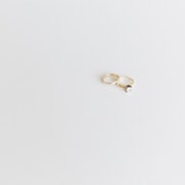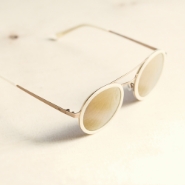Shedding pounds is just around 50% of the fight. The genuine test is keeping it off for good.
The vast majority who follow an eating routine recover a portion of the weight they've lost after just a year. Far more detestable, almost every individual who follows an eating routine regains all the weight they've lost within 3-5 years (12Trusted Source, 13Trusted Source, 14Trusted Source).
That is why specialists frequently propose getting thinner at a sluggish yet consistent speed. Most examinations show that individuals who get in shape at a slow yet constant speed are bound to keep it off long haul (15Trusted Source, 16Trusted Source, 17Trusted Source).
Additionally, plans that support slow weight reduction, for the most part, assist you with building clever dieting ways of behaving, like eating more leafy foods and drinking less sugar-improved refreshments. Ways of behaving like these can help you keep weight off long haul (18Trusted Source, 19Trusted Source, 20Trusted Source, 21Trusted Source).
In any case, a few examinations have found that fast weight reduction might be essentially as viable as sluggish weight reduction, in any event, as long as possible (4Trusted Source, 5Trusted Source).
In one review, 103 individuals followed a fast weight reduction diet for a long time, while 97 individuals followed a sluggish yet consistent weight reduction diet for quite a long time.
Almost three years after the fact, 70% of individuals in the two gatherings had generally recovered all the weight they had lost. This implies that the two eating regimens were similarly viable eventually (22Trusted Source).
Albeit these examinations observed that fast weight reduction was similarly pretty much as compelling as sluggish yet consistent weight reduction, by and large, it's improbable that an individual at home would obtain comparative outcomes.
Individuals in the fast weight reduction bunches had support from specialists and dietitians during the weight reduction and weight upkeep stages. Research shows that having help from a well-being expert can work on your possibilities of long-haul weight reduction achievement (23Trusted Source, 24Trusted Source).
Likewise, specialists and dietitians attempt to limit the well-being gambles that accompany eating not very many calories. These dangers include muscle misfortune, dietary lack and gallstones.
Individuals who attempt these eating regimens alone have a higher gamble of these ailments.
So, you are bound to get more fit and keep it off by shedding pounds gradually. This approach will assist you with building clever dieting ways of behaving to keep the load off and is more secure to do than quick weight reduction, particularly on the off chance that you don't have the help of well-being proficient.
Outline:
that's what most examination shows
- continuous weight reduction is more straightforward to keep up with over the long haul. It helps you
- foster good dieting ways of behaving and has fewer well-being gambles than quick weight misfortune.
Dangers of Losing Weight Too Fast
- While it's enticing to attempt to get more fit quick, it's generally not suggested.
- Abstains from food that advances quick weight reduction are, in many cases, extremely low in calories and supplements. This might jeopardize your numerous medical conditions, mainly if you follow a fast weight reduction diet for a long time.
- The following are a couple of dangers of getting in shape excessively quick.
You May Lose Muscle
- Shedding pounds isn't generally equivalent to losing fat.
- While a highly low-calorie diet might assist you with getting thinner quick, a great deal of the weight you lose may come from muscle and water (4Trusted Source, 10Trusted Source).
- In one review, scientists put 25 individuals on an extremely low-calorie diet of 500 calories each day for quite a long time. They likewise put 22 individuals on a low-calorie diet of 1,250 calories each day for a considerable time.
- After the review, the analysts found that the two gatherings had lost comparable weight measures. Notwithstanding, individuals who followed the highly low-calorie diet lost more than six times as much muscle as those on the low-calorie diet (4Trusted Source).
It May Slow Down Your Metabolism
- Getting thinner too quick might dial back your digestion.
- Your digestion decides the number of calories you consume every day. Slow digestion implies you consume fewer calories each day (25Trusted Source).
- A few investigations have discovered that horrible weight quick by eating fewer calories might make you copy up to 23% fewer calories each day (6Trusted Source, 26Trusted Source).
- Two justifications for digestion drops on an exceptionally low-calorie diet are a deficiency of muscle and a fall in chemicals that direct your digestion, like thyroid chemicals (27Trusted Source, 28Trusted Source).
- Sadly, this drop in digestion might keep going long after you complete the process of consuming fewer calories (6Trusted Source).
It May Cause Nutritional Deficiencies
- If you're not eating an adequate number of calories consistently, you might be in danger of a lack of nourishment.
- This is because it's difficult to consume an adequate number of effective supplements like iron, folate and vitamin B12 on a low-calorie diet.
- The following are a couple of results of dietary inadequacies.
Balding:
When If you eat a couple of calories, your body probably won't get an adequate number of supplements to help hair development, which might cause baldness (29Trusted Source, 30Trusted Source).
Outrageous exhaustion:
You may not be getting sufficient iron, vitamin B12 and folate on an extremely low-calorie Diet might endanger you to excessive exhaustion and sickliness (31Trusted Source, 32Trusted Source).
Unfortunate invulnerable capability:
Not getting an adequate number of calories and supplements might debilitate your resistant framework and increment your gamble of contaminations (33Trusted Source, 34).
Feeble and fragile bones:
Maybe brought about by a lack of vitamin D, calcium and phosphorus in the eating routine (35Trusted Source, 36Trusted Source).
Luckily, you can keep away from a lack of nourishment by eating an eating routine wealthy in authentic, natural food sources. These food varieties contain fewer calories per gram and are additionally very filling, which might assist you with shedding pounds (37Trusted Source).
It May Cause Gallstones
Gallstones are solidified bits of material that structure inside the gallbladder. They can be a problematic symptom of getting in shape rapid (8Trusted Source, 38Trusted Source, 39Trusted Source).
Typically, your gallbladder discharges stomach-related juices to separate greasy food, so it tends to be processed. If you're not eating a lot of food, then your gallbladder will not need to deliver the stomach-related juices (40Trusted Source).
Gallstones can shape when substances inside the stomach-related juices sit for some time and have the opportunity to consolidate.
The gallstones can become stuck inside the launch of the gallbladder and cause a gallstone assault. This might cause severe torment and acid reflux (40Trusted Source).
Opposite Side Effects
Shedding pounds quick on a "crash diet" or exceptionally low-calorie diet is connected to a few opposite incidental effects, including (41Trusted Source, 42Trusted Source):
- Hunger
- Exhaustion
- Touchiness
- Feeling cold
- Muscle cramps
- Wooziness
- Obstruction or the runs
- Parchedness
Synopsis:
- Losing weight too quick comes
- with numerous well-being gambles. These incorporate losing muscle, diminished digestion,
- nourishing inadequacies, gallstones and opposite incidental effects.
 Admin
Admin


















